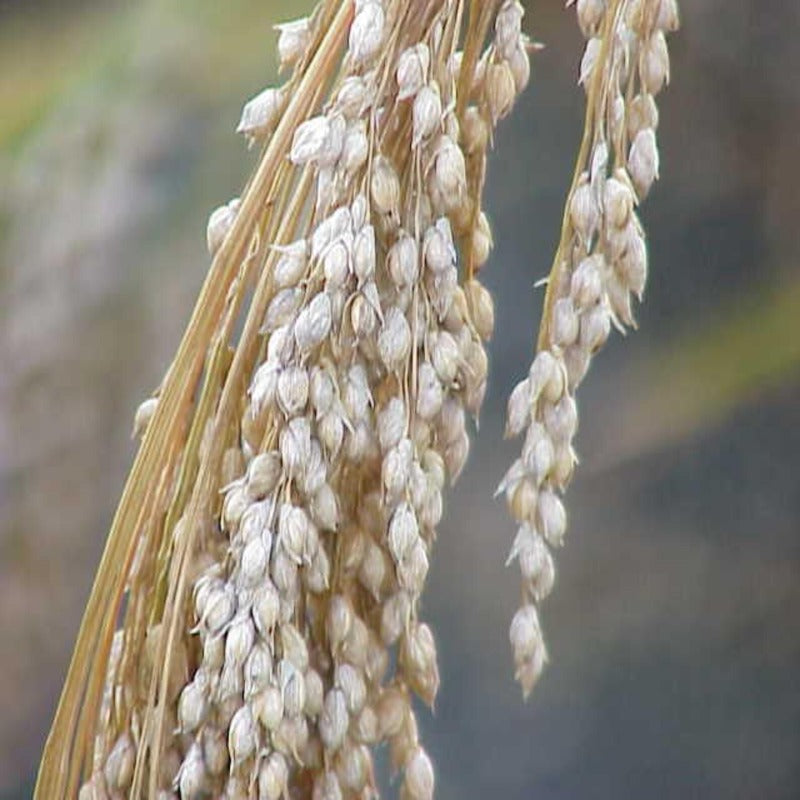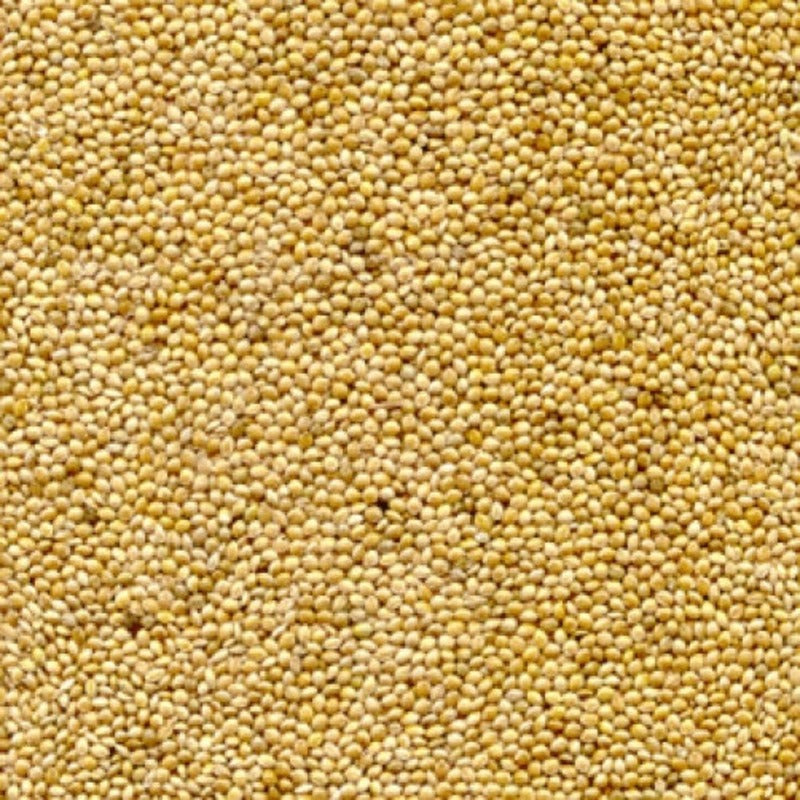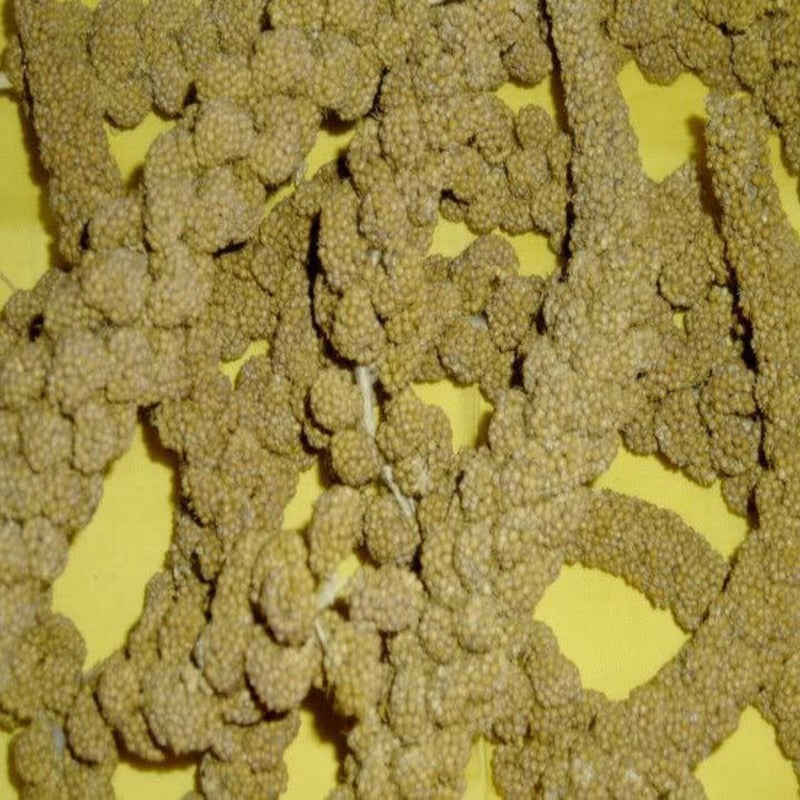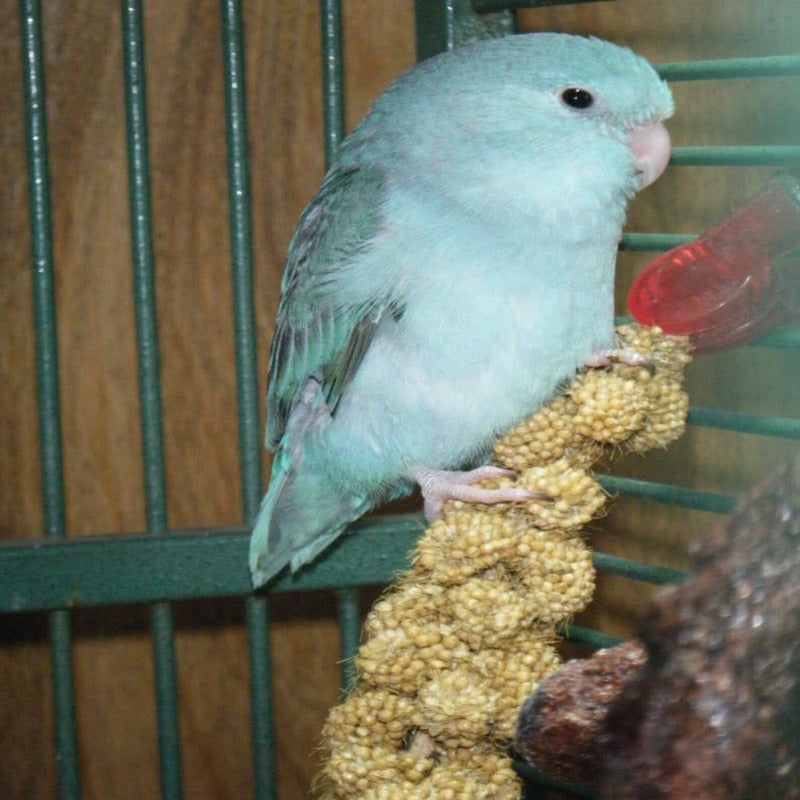- Historical context: Panicum miliaceum, commonly known as proso millet or broomcorn millet, has been cultivated for thousands of years. It is one of the oldest cultivated grains, with evidence of its use dating back to the Neolithic period.
- Geographical origination: This seed is believed to have originated in East Asia, particularly in China, and later spread to Europe and other parts of the world.
- Relevant cultural significance: Proso millet has been a staple food in many cultures, especially in Asia and Eastern Europe. It has also been used in traditional ceremonies and as animal fodder.
- Time period of discovery: The earliest archaeological evidence of proso millet cultivation dates back to around 7000-5000 BCE.
- Original habitat: Panicum miliaceum thrives in temperate and subtropical regions, often found in dry, well-drained soils.
- Notable historical uses: Historically, proso millet has been used as a food source for humans and livestock. It has also been used in brewing and as a component in traditional medicines.
- Ideal temperature range: 15-30°C (59-86°F)
- Soil type: Prefers well-drained, sandy or loamy soils with a pH range of 5.5 to 7.5.
- Sunlight requirements: Full sun is ideal for optimal growth.
- Watering needs: Requires moderate watering. It is drought-tolerant once established but benefits from regular watering during the germination and early growth stages.
- Planting season: Best planted in late spring to early summer when the soil has warmed up.
- Germination time: Typically germinates within 7-14 days under optimal conditions.
- Growth cycle duration: The growth cycle from planting to harvest is usually around 60-90 days.
- Common pests and diseases: Common pests include aphids and grasshoppers. Diseases such as smut and rust can affect the plant. Regular monitoring and appropriate pest control measures are recommended.
- Companion planting advice: Companion plants include legumes like beans and peas, which can help improve soil fertility.
- Common challenges and solutions: Challenges include drought stress and pest infestations. Solutions involve proper irrigation practices and integrated pest management strategies.
- Nutritional values: Proso millet is rich in protein, fiber, and essential minerals such as magnesium, phosphorus, and iron.
- Health benefits: It is gluten-free, making it suitable for people with celiac disease or gluten intolerance. It also supports digestive health and helps in managing blood sugar levels.
- Culinary uses: Commonly used in porridges, soups, and as a rice substitute. It can also be ground into flour for baking.
- Medicinal uses: Traditionally used in herbal medicine to treat digestive issues and as a diuretic.
- Other unique advantages: Proso millet is highly adaptable to different climates and soil types, making it a versatile crop. It also has a relatively short growing season, which allows for multiple harvests in a year.










